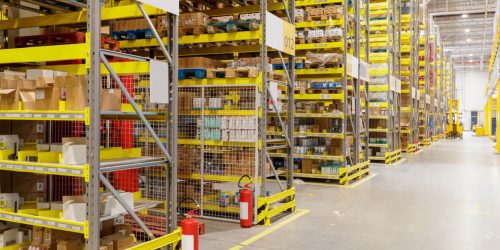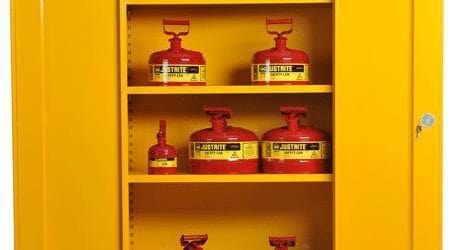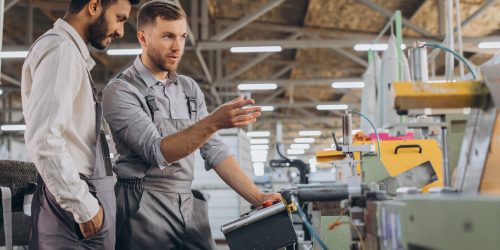Health and safety requirements in the workplace: what legacy will the Covid-19 crisis leave behind?
While the health crisis has marked a major turning point in the evolution of certain areas in companies, the security of goods and people has always been at the heart of the concerns of corporate management. This has now been amplified by new expectations and new offers!
Before Covid-19…
Whether it is now or before the Covid-19 crisis, companies have always been responsible for ensuring the health and safety of their employees through the provision of Personal Protective Equipment (PPE) specific to a given profession, but also the safety of property by providing safes, safety panels, screens when interacting with the public, safety mirrors, fire extinguishers.
At the same time, companies mustn’t forget hygiene and are required to provide many products to ensure cleanliness for their employees: disinfectant products, hand towels, toilet paper, cleaning trolleys and rubbish bins.
In recent years, in response to new expectations, distributors have expanded their product ranges and launched new partnerships, particularly concerning CSR issues: waste management, more environmentally friendly products. The goal is to offer the widest possible range of products to enable customers to access all products and thus align with new values.
During Covid-19…
When the crisis was at its worst, distributors noted a significant increase in sales of only a few products, such as equipment to assist in social distancing once it became mandatory, including masks, gowns for certain professions and hand sanitiser dispensers.
To meet this exceptional demand, some distributors turned to their international partner networks, particularly Asian brands. Thus, orders for products in astronomical quantities could be placed but they had to comply with certain standards to ensure customers were only offered top quality products.
Due to the sudden nature of the crisis, some customers turned to anyone they could find to get products as quickly as possible. But the phase when they would buy “anywhere at any price” came to an end because attention to product conformity was essential! For example, a factory manager who buys PPE cannot afford to run into a counterfeit without a certificate of origin, thus running the risk of endangering the health or indeed the lives of his employees.
The distributor’s role doesn’t end when a sale goes through. Above all, it is there to select suppliers and products that comply with the regulations. From the beginning to the end of the chain, the distributor is committed to verifying products’ origin, compliance with standards to ensure customers are always offered responsible products.
With the health crisis, many new, high quality suppliers with broad and satisfactory ranges have surfaced and distributors have been able to expand their offerings to their customers.
After Covid-19…
As the health crisis abates somewhat, distributors are finding that customers returning to “normal” business are paying much closer attention to hygiene and safety. This awareness has allowed some to discover and others to rediscover the proper use of all the various hygiene products found in the workplace. More people are demonstrating appropriate responses for the benefit of everybody.
Reducing the environmental and societal impact of products is a real challenge. Customers have new expectations when it comes to hygiene and safety products and are looking for more responsible supplies. This is particularly true of calls for tender, where between 5% and 20% of the score is based on the inclusion of CSR criteria.
Today, the distributor must therefore emphasise its ability to offer its customers eco-responsible products and to provide support on training and awareness by demonstrating concrete evidence of products’ origin, composition, eco-labels or end of life. This is particularly true as regulations increase, imposing added standards on products.
The idea is to propose a crossover approach between responsible products and responsible suppliers in order to allow customers to make an informed choice free of impositions, but rather simply accompanying them in all environmental and societal aspects: preservation of natural resources, carbon footprint, employee health and well-being, products promoting inclusion, etc.
On the one hand, the pandemic has accelerated certain practices, particularly with regard to hygiene and safety, and, at the same time, regulations also encourage these practices. Naturally, regulations are likely to become increasingly restrictive and companies will be obliged to prove their credentials, thus requiring their suppliers to implement eco-responsible approaches themselves. Discover more advice on implementing a CSR strategy with our Keys for a successful CSR strategy whitepaper.




